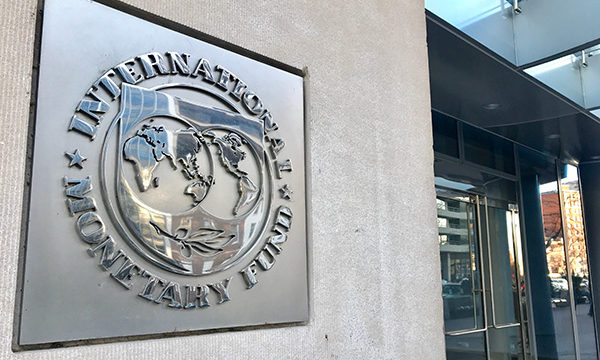The International Monetary Fund believes that the ultra-low interest rates that characterised the global pre-pandemic economy are “likely” to return, in a communication released at the beginning of its Spring Meeting, one of the organisation’s two major annual meetings bringing together the world’s main stakeholders in the financial system.
“When inflation is brought back under control, advanced economies’ central banks are likely to ease monetary policy and bring real interest rates back towards pre-pandemic levels,” it said.
“How close to those levels will depend on whether alternative scenarios involving persistently higher government debt and deficits, or financial fragmentation materialise.”
The IMF based its conclusions on an examination of the ‘natural rate of interest’ – the interest rate which keeps inflation on target while neither stimulating nor hampering economic growth.
It found that sluggish productivity growth and aging populations will likely bring inflation down significantly, with interest rates set to follow.
The accuracy of the findings depend on a number of variables that could change, and must be approached with caution.
For example, the team of economists behind the research noted that Government support extended over the last few years “may be difficult to withdraw”, thereby increasing public debt. On the other hand, “deglobalisation forces could intensify”, the report noted, leading to trade and financial fragmentation and pushing up the cost of borrowing.
Major economies like the EU, the US, and the UK have been struggling with inflation rates unseen in decades. The sustained price increases have largely been attributed to spillover from a supply chain crisis due to the COVID-19 pandemic and an energy price shock in the wake of Russia’s invasion of Ukraine.
This has prompted central banks to raise their interest rates, with the European Central Bank’s deposit facility rate increasing from 0.5 per cent to three per cent since July 2022, although the impact on Malta, so far, has been limited.
There have been signs, however, that inflation has been moderating in recent months.
This is backed up by data released by China on Tuesday (today), showing that inflation in the major economy has hit an 18-month low.
Its consumer price index has risen by just 0.7 per cent so far this year, weaker than forecast and at the lowest rate since September 2021.
China’s factories, supplying so much of the world’s manufacturing, also cut prices, with the producer price index in March falling by 2.5 per cent year-on-year – accelerating from the 1.4 per cent drop seen in February.
Self-employed, employees and companies contribute €2.1 billion in 2023
Parliamentary data reveals five-year growth trends in fiscal contributions
MFSA concludes review of Crypto-Asset Service Providers following MiCA implementation
The Authority provided clear expectations and guidance to address certain concerns.
Malta Development Bank to launch schemes supporting sustainable development and creative sector
In 2024, the MDB launched the SME Guarantee Scheme and the Guaranteed Co-Lending Scheme






